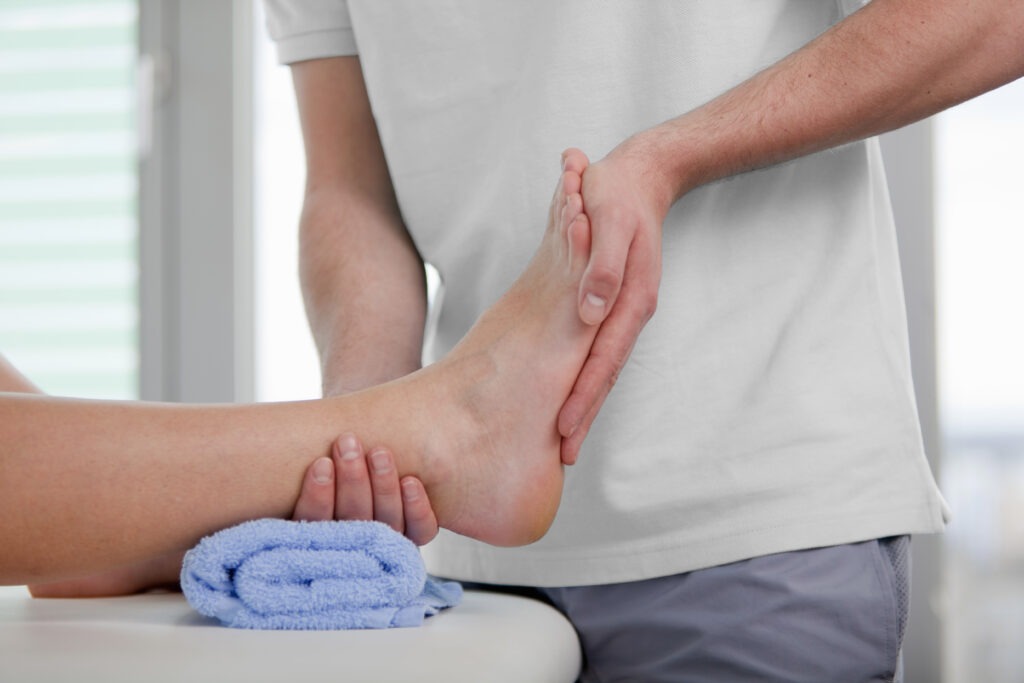Plantar fasciitis is inflammation of the plantar fascia, a part of your foot that connects your heel bone to your toes. That tell-tale stabbing pain in the bottom of your foot near the heel that you experience when taking the first steps of the morning is a classic symptom for this condition. Patients often find that the pain eases off as they continue to walk but often returns in the afternoon or evening after being on their feet all day.
The plantar fascia provides stability during both static and dynamic foot movements, it is also a shock absorber, so it is no wonder our pain receptors have something to say about it when things go wrong! Injury to the plantar fascia is usually due to tiny tears or inflammation in this fibrous tissue connecting your heel bone to your toes.
This condition is often a result of:
o Age. Plantar fasciitis is more common in those over 40
o Certain exercises and poor footwear decisions. Certain activities place more stress on the heel and attached tissues, running, ballet, dance and aerobic exercise to name but a few can all bring on this condition. When it comes to footwear – both heels and flats can be to blame. Shoes which offer little or no support like flip flops are often the top culprit when it comes to plantar pain.
o Mechanics of the foot. Flat feet, high arches or an abnormal gait affect the way in which weight is spread over the sole of the foot, this causes added stress on the plantar fascia.
o Weight. Unfortunately, those extra pounds we are carrying are not appreciated by our feet.
o Occupation. Often referred to a Policeman’s heel, plantar fasciitis is common among factory workers, teachers, police officers and others who spend a lot of time walking or standing on hard surfaces.

Diagnosis of this condition is usually based on your description of the pain, medical history, and a physical examination. Our physiotherapists will check for areas of pain and tenderness in your foot and ankle, on very rare occasions they might refer you onward for an X-ray or MRI to rule out a stress fracture or bone spur.
Treatment is often a combination of rest, ice, stretching and pain relief if necessary. Our physiotherapists will teach you a series of exercises to stretch the plantar fascia and Achilles tendon. They may also consider ultrasound therapy or apply taping to support your foot and prescribe arch support orthotics to help spread the pressure across your foot more evenly.
A short course of treatment is usually all that is needed to “get you back on your feet”, so don’t suffer unnecessarily – book an appointment today.
Call us on 023 9255 4007 or book online and let us help you get back to living your best life.
